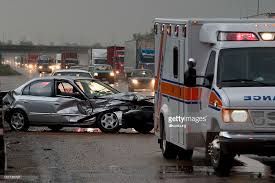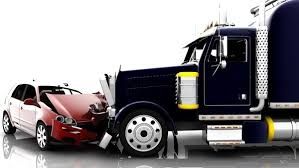Why It Is Necessary To Prevent Road Accidents
Feb 02, 2019 • 34 views
Road accidents are undoubtedly the most frequent and, overall, the cause of the most damage. The reasons for this are the extremely dense road traffic and the relatively great freedom of movement given to drivers. Accidents involving heavy goods vehicles (especially coaches and lorries with trailers) occur all too frequently despite caIls for responsible behaviour, for respect of the loading regulations and the highway code, as well as the obligation for drivers to adapt their speed, which affects stopping distances, to the traffic and weather conditions (rain, ice, fog, etc.). The prevention of road accidents

is also extremely important and will be ensured by strict laws, by technical and police controls, ongoing training for drivers (especially those involved in the transport of dangerous substances) and, if need be, by legal and administrative penalties for those responsible.
Intervention and rescue measures
The control of all accidents is, in the first instance, the responsibility of the commander (chief) and personnel of the affected means of transport. It is up to them to limit the resulting damage as much as possible. Passengers must obey the directives of the personnel on board (protective and rescue measures) and behave as they are instructed by the regulations on disaster situations, especially air, rail or maritime disasters.
The principles of intervention are as follows:
In the case of an air disaster occurring on, or in the immediate vicinity of, an airport (generally within a 5 kilometre radius), control of the incident is the responsibility of the airport authorities since control of the air traffic is the responsibility of the airport in question and the control tower is in charge of warning the security and intervention services.
If the incident occurs outside the area under control of the airport authorities, the political authorities of the affected area will be in charge of the deployment of local intervention teams (police, fire brigade, civil protection, health services, etc.).
When the accident occurs

Keep calm and avoid panic; to the extent possible, help family and neighbours who are in difficulty.
Follow the captain's (or driver's) orders and those of the crew.
Keep identity papers and important personal documents (medical and vaccination certificates and details of blood type) and any personal medicines with you.
As soon as the crash or shipwreck occurs, try to free yourself from the cabin and to escape quickly from the wreckage, especially if there is a danger of fire or dangerous leaks. Seek refuge at a sufficient distance.
If possible, activate the rescue process by alerting the local security or specialist services (special telephone networks and numbers).
In case of a major accident occurring in a road with traffic, direct the traffic whilst taking care of your own safety (signal and mark the accident spot).
After the accident
Keep calm and avoid panic.
Follow the instructions of the intervening bodies and of the rescue personnel.
If possible, and if necessary, collaborate with the rescuers and with the judicial authorities and experts in charge of the investigation.
